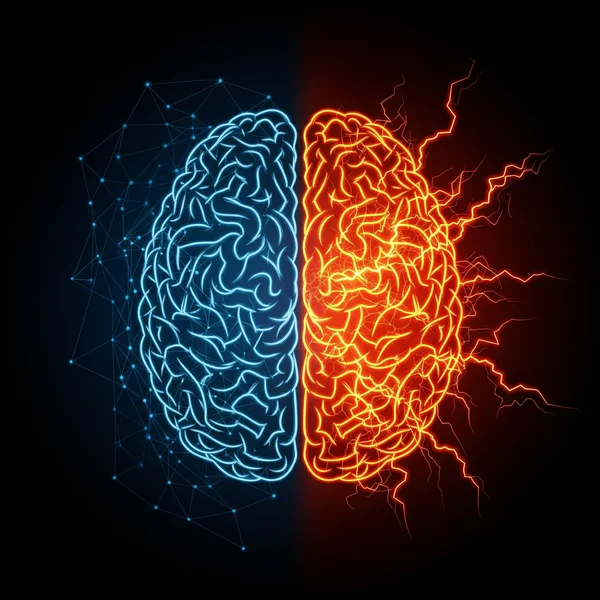What is Psychopathy? A Guide to Traits & Assessment
July 6, 2025 | By Rosalind Kent
When you hear the word "psychopathy," what comes to mind? For many, it's the chilling, calculated villain from a Hollywood movie. But what is psychopathy in the real world, beyond the fiction? It's a complex and often misunderstood personality construct studied by psychologists for decades. If you've ever wondered about the actual psychopathic traits or asked yourself, "can you test for psychopathy?", you've come to the right place. This guide will demystify the concept, explore its core characteristics, and explain how it's assessed, providing you with a foundation for deeper understanding. For those interested in self-exploration, a scientifically-based psychopathy spectrum test can be a valuable first step.
Disclaimer: This article is for informational and educational purposes only. The content provided here is not intended to be a substitute for professional medical advice, diagnosis, or treatment. The online tests mentioned are screening tools for self-awareness, not diagnostic instruments. If you have concerns about your mental health, please consult a qualified healthcare professional.

The Clinical Definition of Psychopathy
So, what is the formal psychopathy definition? Psychopathy is not an official diagnosis in the Diagnostic and Statistical Manual of Mental Disorders (DSM-5), but it is a widely researched clinical construct. It is characterized by a distinct cluster of personality traits and behaviors.
Not Just a Personality Quirk: The Core Concept
At its heart, psychopathy involves a combination of interpersonal, affective (emotional), lifestyle, and antisocial characteristics. It's more than just being "mean" or "different"; it represents a fundamental divergence in how an individual experiences emotions and relates to others.
Relationship with Antisocial Personality Disorder (ASPD)
You may have heard of ASPD, which is an official diagnosis recognized by the American Psychiatric Association. While there is significant overlap, they are not the same. ASPD is primarily defined by observable behaviors, like breaking laws and repeated deceitfulness. Psychopathy is a more specific construct that also heavily emphasizes internal experiences, such as a profound lack of empathy and guilt. Many people who meet the criteria for psychopathy also meet the criteria for ASPD, but not everyone with ASPD would be considered a psychopath.
A Look Back: The History and Evolution of the Concept
The modern understanding of psychopathy has deep roots in psychiatric history. Exploring this helps us appreciate its complexity.
From Hervey Cleckley's "The Mask of Sanity"
In his seminal 1941 book, psychiatrist Hervey Cleckley introduced the concept of the "mask of sanity." He described individuals who appeared normal, charming, and intelligent on the surface but concealed a deeply disordered personality underneath, devoid of genuine emotion and moral grounding. This laid the groundwork for future research.
The Influence of Dr. Robert Hare's Research
Building on Cleckley's work, Dr. Robert Hare developed the most widely used clinical assessment tool for psychopathy, the Hare PCL-R. His research helped operationalize the construct, making it possible to measure and study systematically.

The Core Psychopathy Traits: A Two-Factor Model
To better understand psychopathic traits, researchers often use a two-factor model, which groups the characteristics into two main categories. This provides a clear framework for grasping the condition.
Factor 1: Interpersonal & Affective Deficits
This factor captures the emotional and relational core of psychopathy. It's about how they interact with and feel (or don't feel) about others.
- Superficial Charm and Glibness
- Grandiose Sense of Self-Worth
- Lack of Empathy, Guilt, or Remorse
- Shallow Emotions
Factor 2: Lifestyle & Antisocial Behavior
This factor relates to an unstable and socially deviant lifestyle. It's about how they live their lives and interact with societal norms.
- Impulsivity and Need for Stimulation
- Poor Behavioral Controls
- Irresponsibility
- Early Behavior Problems
Is Psychopathy a Spectrum?
A crucial modern understanding is that psychopathy is best viewed as a spectrum. It's not an "on/off" switch where you either are one or you are not. Many people may exhibit some of these traits to varying degrees without having the full-blown disorder. This is often referred to as subclinical psychopathy. Recognizing this spectrum is vital because it moves away from stigmatizing labels and toward a more nuanced understanding of personality. A psychopathy spectrum test is designed to measure where an individual might fall along these dimensional traits.

How is Psychopathy Assessed? From Self-Report to Clinical Tools
This brings us to a critical question: what is the test for psychopathy? The psychopathy assessment process varies significantly depending on the context.
The Gold Standard: The Hare PCL-R (for clinicians)
The Hare Psychopathy Checklist-Revised (PCL-R) is the most respected instrument for clinical and forensic settings. It is not a self-test. A trained professional conducts a detailed interview and reviews extensive collateral information (like criminal records) to score an individual on 20 items. This is the hare psychopathy test you often hear about in research.
Self-Assessment Tools: The Role of the LSRP
Scales like the Levenson Self-Report Psychopathy Scale (LSRP) allow individuals to rate themselves on various traits. These tools are valuable for research and for personal insight, as they can highlight tendencies and patterns of thinking and behaving.
Online Screening Tests: What They Can (and Can't) Tell You
Online tools, like the one offered here at psychopathytest.org, are designed as educational and self-screening instruments. They are often based on the principles of established self-report scales. They cannot provide a diagnosis, but they can offer valuable, confidential insights into your own personality traits and how they align with the constructs of psychopathy. It is the best way to test for psychopathy as a preliminary step for self-discovery.
Psychopathy vs. Sociopathy vs. ASPD: Clearing the Confusion
These terms are often used interchangeably, but experts see distinctions.
| Feature | Psychopathy | Sociopathy | Antisocial Personality Disorder (ASPD) |
|---|---|---|---|
| Core Deficit | Lack of empathy, fearlessness (believed to be more innate/genetic). | Volatile, prone to emotional outbursts (believed to be more environmental). | A broad pattern of disregard for the rights of others. |
| Behavior | Controlled, meticulous, charming. Can maintain a "mask of sanity." | Impulsive, erratic, less able to hold down jobs or relationships. | The official diagnostic category, focused on observable antisocial acts. |
| Origin | Largely considered a neurodevelopmental condition. | Often linked to childhood trauma, abuse, or neglect. | A clinical diagnosis based on a checklist of behaviors. |
Take the First Step: Discover Your Traits with Our Test
Understanding these concepts is the first step. The next is self-reflection. If this guide has sparked your curiosity about your own personality patterns, our test provides a structured, insightful, and completely confidential way to explore them.
Our free online psychopathy test is designed for adults who want to:
- Gain insight into their emotional and interpersonal traits.
- Understand where they might fall on the psychopathy spectrum.
- Use a tool based on established psychological research for self-awareness.
Click Here to Take the Test and Get Your Instant Report
Conclusion: Understanding, Not Judging
Psychopathy is a deeply complex and serious area of psychology, far removed from its one-dimensional portrayal in pop culture. The key takeaways are that it's a spectrum of traits, primarily defined by a lack of empathy and antisocial behaviors, and its assessment ranges from clinical tools to self-awareness tests. The goal of learning about it is not to label or judge, but to foster understanding—both of others and, potentially, of ourselves.
Frequently Asked Questions
Is there a definitive "test" for psychopathy?
For a clinical diagnosis, the Hare PCL-R administered by a trained professional is the gold standard. For self-awareness and educational purposes, a well-constructed online psychopathy test like the one on our site can provide valuable initial insights.
Are all psychopaths criminals?
No. This is a common misconception. While a high percentage of the prison population scores high on psychopathic traits, many individuals with these traits (sometimes called "successful" or "high-functioning" psychopaths) never engage in criminal behavior and may even succeed in corporate or other competitive environments.
What is the difference between psychopathy and narcissism?
While both can involve a grandiose sense of self and a lack of empathy, the core motivations differ. Narcissism is driven by a desperate need for admiration and a fragile ego. Psychopathy is characterized by a more predatory and instrumental approach to others, often for stimulation or material gain, without the same need for validation.
Can psychopathy be cured?
This is a topic of ongoing debate. Traditional therapy is often ineffective and can sometimes make things worse by teaching individuals to better manipulate others. However, some newer, highly structured treatment programs focused on managing behavior rather than "curing" the lack of empathy have shown some promise, especially in younger individuals.
References
- Cleckley, H. M. (1941). The Mask of Sanity: An Attempt to Clarify Some Issues About the So-Called Psychopathic Personality. St. Louis, MO: Mosby.
- Hare, R. D. (1991). The Hare Psychopathy Checklist-Revised. Toronto, ON: Multi-Health Systems.
- American Psychiatric Association. (2013). Diagnostic and statistical manual of mental disorders (5th ed.).